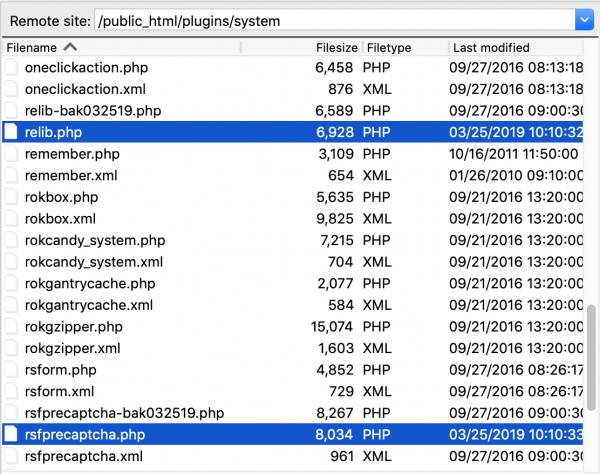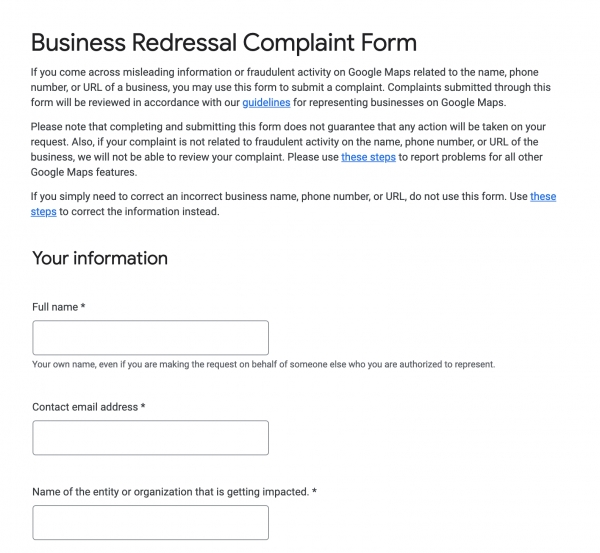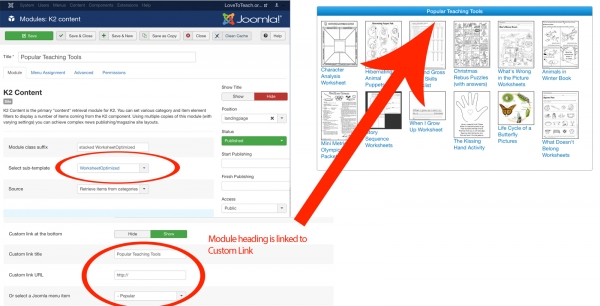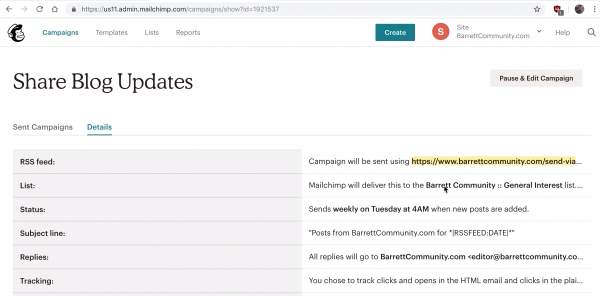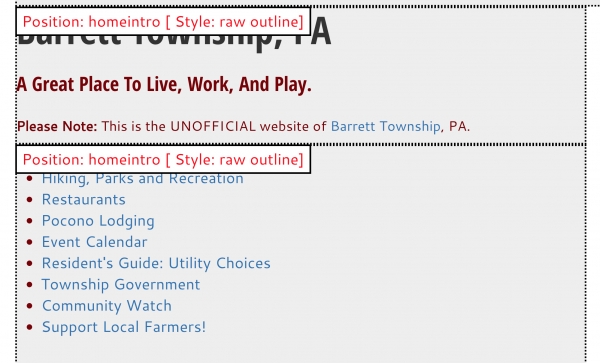Web Design Blog
Since Google has phased out old recaptcha (v1), some of our clients reported that their old Joomla 1.5 installs are suffering - getting spammed, now that they no longer have a decent captcha available. While we realize that Joomla 1.5 sites should be upgraded to the latest version, not all clients are willing, or able to afford this.
Here’s how to submit a Google My Business spam complaint:
- Click here to head to the form (you’ll want to bookmark it as it’ll soon become your best friend)
- Read the guidelines linked to in the form’s introduction carefully. This is what the Google staffer reading your form will judge your complaint against, so you need to make sure what you’re claiming is misleading or fraudulent is specifically at odds with something in these guidelines.
- Enter your information. Even if you’re a local marketing consultant or agency representing another business, you’ll need to enter your name and email address.
- If you’re submitting just one complaint, select the fraudulent content in question (Title, Address, Phone number, or Website) and add the public GMB URL in the field below. (More than one type of content to complain about? Sorry to say this, but it appears that you’ll have to submit multiple forms).
- If you’re submitting more 1-10 complaints about different businesses but the same content type, select the content in question and then add multiple URLs by clicking ‘Add additional’ after you’ve added the first.
- If you’re submitting more than 10 complaints about different businesses but the same content type, you can use the form’s bulk CSV upload feature to submit a spreadsheet of all URLs (up to 100).
- Now for the fun part: write, in detail, why the content is malicious or fraudulent. I can’t stress enough how important the level of detail is. Google Gold Product Expert Ben Fisher championed those who gave great amounts of detail when submitting spam to the GMB forum in a recent webinar, and we can only assume that Google’s own team require a similar level of detail. Write clearly, professionally and respectfully, and be make sure to refer to how the subject of your complaint is contravening the aforementioned Google guidelineswhere possible, to make the Google staffer’s job a little easier. If you’re reporting multiple incidents of spam, it makes sense to have those exhibiting the same bogus characteristics (e.g. keyword stuffing in business name) grouped together in one complaint to save you having to submit multiple reports.
- Take one last look through the completed form.
- Rub a lucky rabbit’s foot.
- Click ‘Submit’.
I recently started using Gusto payroll processing service and wanted to share a quick review. I think it's a great system.
For $45 + $6/employee / month it gets you weekly direct deposit, it keeps track of vacation time, overtime, bonuses, tips, deductions, AND all of the employer / employee taxes. Plus it integrates with my Quickbooks software, I can download a simple IIF file each payroll and Gusto plugs all of the data into Quickbooks. Plus, Gusto handles all of our W2 and employee data, so I don't have to worry about it.
You may have noticed a red warning message in your Joomla admin panel saying something like this:
Error
We have detected that your server is using PHP 5.6.x (or PHP 5.4.x or PHP 7.0.x) which is obsolete and no longer receives official security updates by its developers. The Joomla! Project recommends upgrading your site to PHP 7.1 or later which will receive security updates at least until 2019-12-01. Please ask your host to make PHP 7.1 or a later version the default version for your site. If your host is already PHP 7.1 ready please enable PHP 7.1 on your site's root and 'administrator' directories – typically you can do this yourself through a tool in your hosting control panel, but it's best to ask your host if you are unsure.
I recently heard a story of a business that got caught with fake reviews on Yelp. They were also an advertiser spending thousands of dollars a month on ads. When they got caught, Yelp canceled their ad account and told them they would be demoting the listing’s ranking for 6 months. After that time, they would re-evaluate, but there was no guarantee that things would go back to how they were before. Yelp’s stance on fake reviews couldn’t be more completely opposite of Google’s. Here are a few ways they differ when it comes to approaching businesses caught with fake reviews:
1. Yelp issues a ranking penalty, Google does not.
2. Yelp stops the business from advertising, Google does not.
This is a free "K2 Content Module" template override for the Joomla component K2 that can be used with any Joomla 1.5, 2.5, or 3.x site.
Download the template override files attached to this post and upload them into your Joomla template here:
/templates/your-template/html/mod_k2_content/
So the full path will look like this:
/templates/your-template/html/mod_k2_content/C2-Optimized/default.php
This video demonstrates how to use Joomla and K2 to deliver email notifications to your contact list using Mailchimp - you can specify in Mailchimp how frequently (monthly, weekly, etc) and on which day and time you want the emails to be delivered.
The video below will demonstrate how I used Joomla + K2 to build an advanced, custom home page layout using regular Joomla modules. This customization and technique will work on any Joomla 1.5.x, 2.5.x or 3.x site.
Download the template override files attached to this post and upload them into your Joomla template here:
/templates/your-template/html/com_k2/
So the full path will look like this:
/templates/your-template/html/com_k2/home-override/category.php
Now would be a good time to remove the "Google+" profile link from your website, if you haven't already.
Original Article:
Google is about to have its Cambridge Analytica moment. A security bug allowed third-party developers to access Google+ user profile data since 2015 until Google discovered and patched it in March, but decided not to inform the world. When a user gave permission to an app to access their public profile data, the bug also let those developers pull their and their friends’ non-public profile fields. Indeed, 496,951 users’ full names, email addresses, birth dates, gender, profile photos, places lived, occupation and relationship status were potentially exposed, though Google says it has no evidence the data was misused by the 438 apps that could have had access.
The company decided against informing the public because it would lead to “us coming into the spotlight alongside or even instead of Facebook despite having stayed under the radar throughout the Cambridge Analytica scandal,” according to an internal memo. Now Google+, which was already a ghost town largely abandoned or never inhabited by users, has become a massive liability for the company.
See Also:
(Do ADA (or Section 508) Accessibility Standards Apply to My Website?)
I've had a few clients ask me recently about ensuring that their website is ADA accessible, mainly referring to visually impaired users and their ability to navigate and interact with your site.
I've also spoken to business owners who have already been targeted with litigation because their website was not ADA compliant.
I've inquired with a client of mine (who happens to be an attorney) and asked them for any guidance they could offer on the issue.
Free consultation?
Book now. No commitment.
hello@covingtoncreations.com
will reply in 24 hrs
570.508.6881 (or SMS)
9-5 mon-fri
Design & Development
Wordpress, Drupal, Joomla
New custom websites, bespoke themes and extensions, redesigns, upgrades, migrations
Optimization & SEO
Let us optimize and manage your overall online presence. We offer full service monthly SEO as well as one-time projects.
Maintenance, Patching
White glove monthly backups, security updates, maintenance and testing for your Wordpress, Drupal, or Joomla site.

